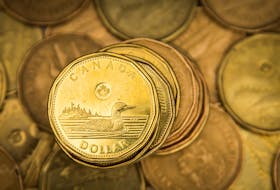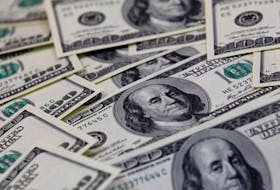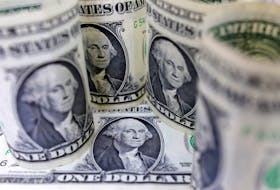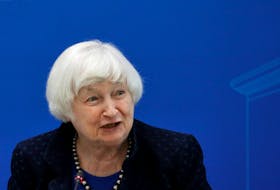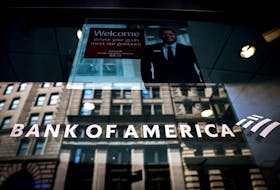By Samuel Shen and Noah Sin
SHANGHAI/HONG KONG (Reuters) - Bondholders caught in a $850 million state-backed corporate default in China were split over an offer to repay them roughly 40 cents on the dollar, in only the second distressed test of the country's offshore bond markets in 20 years.
Qinghai Provincial Investment Group (QPIG), an energy and mining conglomerate, missed an interest payment on Jan. 10, triggering defaults on three dollar-denominated bonds.
On Feb. 5, a unit of Qinghai Provincial Investment and Development Co - an investment vehicle which like QPIG is controlled by the Qinghai government - offered to pay bondholders between 36.75 cents and 41.19 cents for every dollar of debt, depending on the maturity of the bonds held.
Investors owning 54% of the bonds accepted the offer, according to the tender results released on Tuesday evening, only slightly outweighing those who said nay.
QPIG did not immediately respond to Reuters' request for comment.
The deal could further shake confidence among investors holding similar bonds of local governments as the country's economic growth slows under the weight of trade tariff pressures and a coronavirus outbreak.
In November, commodities trader Tewoo Group Corp based in the northeastern city of Tianjin became the first SOE to not pay offshore investors back in full since the 1998 bankruptcy of Guangdong International Trust & Investment Corp.
Tewoo bondholders were offered a choice between accepting cash at a discount to face value, or to swap the debt for new, longer-term bonds offering lower interest rates. Investors holding 57% of the debt chose to take cash worth between 37% and 67% of the face value of their holdings, while 22.6% took the new bonds, according to filings on the Singapore Exchange.
Qinghai, in China's northwest, is one of the country's poorer regions, which conversely may have led some investors to believe local officials were more likely to bail out troubled companies and their creditors.
"That's a classic case. People who liked Qinghai went in because they believed it would be bailed out," said Amy Kam, head of Asian credit and investment manager at GAM Investments in London, who does not own QPIG's bonds.
Tiansi Wang, senior credit analyst at Robeco in Hong Kong, said investors would likely become more careful in looking beyond the potential for government rescues.
"Government support is a plus. But standalone profiles have always got to be strong regardless of the owners," said Wang.
Qinghai bondholders who do not accept the offer will still hold their bonds, but the deal documents leave open the potential for similar future offers with no guarantee of the price or offer structure.
"TREATED LIKE BEGGARS"
The Qinghai offer has upset several bondholders who claim the deal is unfair because it involves two arms of the same government, whose links are not clear.
"I'm stunned," said one investor holding $100 million of bonds. "We were given no way out. Investors are treated as beggars."
Declining to be named, he said his original investment was partly based on a visit to Qinghai in July, 2018 when officials emphasized the importance of QPIG to the local economy.
"We thought the investment would be safe, as the local government needs to safeguard its reputation," he added.
He plans to fight on to recover the money. Other investors have already taken the quarrel public.
While withholding their names, some bondholders have called on Beijing to investigate the default in depth via a full page advertisement in a Hong Kong newspaper.
Investors owning 67% of a QPIG 2021 note, listed in Singapore, turned down the offer.
Of the two other bonds, traded in Hong Kong, holders of 44% of a note maturing this year and 31% of another bond due in 2021 rejected the offer.
(Reporting by Samuel Shen in Shanghai and Noah Sin in Hong Kong; Additional reporting by Alun John in Hong Kong; Editing by Jennifer Hughes, Jacqueline Wong and Lincoln Feast.)

